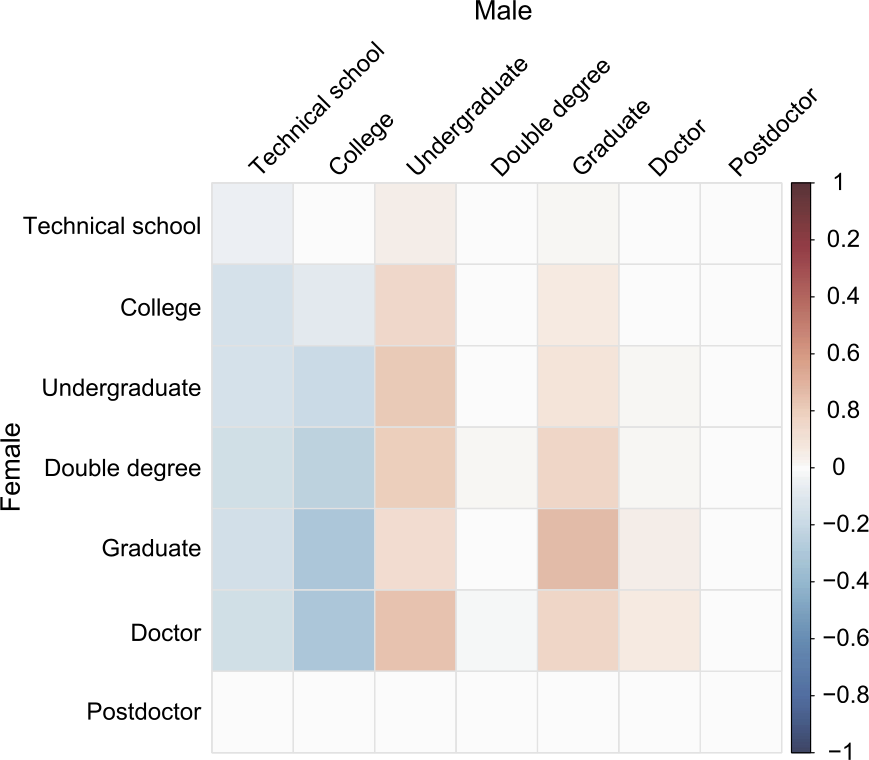
· This is illustrated by the gender difference in the proportion of men vs. women who get approached through their online dating profiles. Specifically, men approach women through online dating sites more than women approach men. For instance, once study of online daters reported that 57% of men vs. 23% of women never got a single email from a prospective dateCited by: · In online dating, there are significant gender differences in terms of attribute preference, self-presentation and interaction. Users usually have a certain preference for mates’ age or height. For both men and women, when they send messages to their potential partners, we compute the age difference as age(receiver) − age(sender), and the height difference as height(receiver) − Cited by: 3 Results indicated that, compared to baseline measures, male participants increased the amount they self-presented when anticipating a future interaction with a prospective date. Specifically, male participants emphasized their positive characteristics more if the potential date was less salient (e.g., email meeting) compared to a more salient condition (e.g., face-to-face meeting) or the control conditions. Implications for self-presentation theory, online social interaction, and online Cited by:
Online Dating: The Virtues and Downsides | Pew Research Center
Women, if you think it serves you well to write the first message after matching with a guy, you're wrong. Men, if you think that financial success is irrelevant in dating, you, too, are mistaken. At least if we are to believe the numbers. Online dating may have practically revolutionised how gender online dating date in modern society, but apparently traditional gender roles still dictate how men and women engage in online courtship. SEE ALSO: Swiping sucks and even the dating industry knows it.
In a major new study from the Oxford Internet Institute OIIresearchers have looked at data from— exclusively cisgendered, heterosexual — users on the dating site eHarmony over a 10 year period in the UK. Their findings show that both men and women still exhibit gender stereotypical behaviour when dating online.
The study concludes that online dating has not just perpetuated male dominated initiation, but exacerbated it, since men are 30 percent more likely to write the first message. When women do initiate contact, it doesn't do them much good. The study shows that women's response rate goes down 15 percent when they are the ones to write first. It puts the inequality in the who-writes-first game down to "learned norms".
The study also argues that since Tinder was introduced the "psychological costs" of messaging has declined for men — they simply care less. To put things in context, Tinder was first released in and had a billion swipes per day by Where computational science and social science meets!
A new study by OII's Dr Taha Yasseri and Rachel Dinh analyses 10 years of eharmony UK data to reveal fascinating insights into online dating and changing trends. The study also shows that yes, gender online dating, women are more likely to be evaluated on their looks than men. Some of the most important factors for determining gender online dating success were physical traits such as age and athleticism, gender online dating, while men are being judged by their degree of agreeableness and altruism as well as their athleticism.
Being clever predicts success for men but not for women. Men, on the other gender online dating, have more reason to be concerned with the size of their pay check than women, since women gender online dating still 30 percent more likely to take income into consideration when looking for a partner. But, the study concludes that, over time, a partner's income is becoming less and less important for both men demonstrating that Brits are generally becoming gender online dating and more open to dating people with a different financial and educational background.
So, ladies, please be young and fit and whatever you do, don't write first. Gentlemen, be well-paid, well-behaved and willing to take initiative at all times, gender online dating. Or, you know, go with your gut and be yourself because that's the most important thing. We're using cookies to improve your experience, gender online dating. Find out more. Culture Like Follow, gender online dating. WATCH: Arturo Castro talks about the first time he dated a vegan.
Online Dating Statistics () - Who Uses Online Dating More? - Her Norm

· This statistic presents the percentage of adults in the United States who have used a dating website or app as of April , by gender. According to the findings, nine percent of male respondents · In online dating, there are significant gender differences in terms of attribute preference, self-presentation and interaction. Users usually have a certain preference for mates’ age or height. For both men and women, when they send messages to their potential partners, we compute the age difference as age(receiver) − age(sender), and the height difference as height(receiver) − Cited by: 3 · Their findings show that both men and women still exhibit gender stereotypical behaviour when dating online. The study concludes that online dating has not just perpetuated male dominated Estimated Reading Time: 2 mins

Keine Kommentare:
Kommentar veröffentlichen